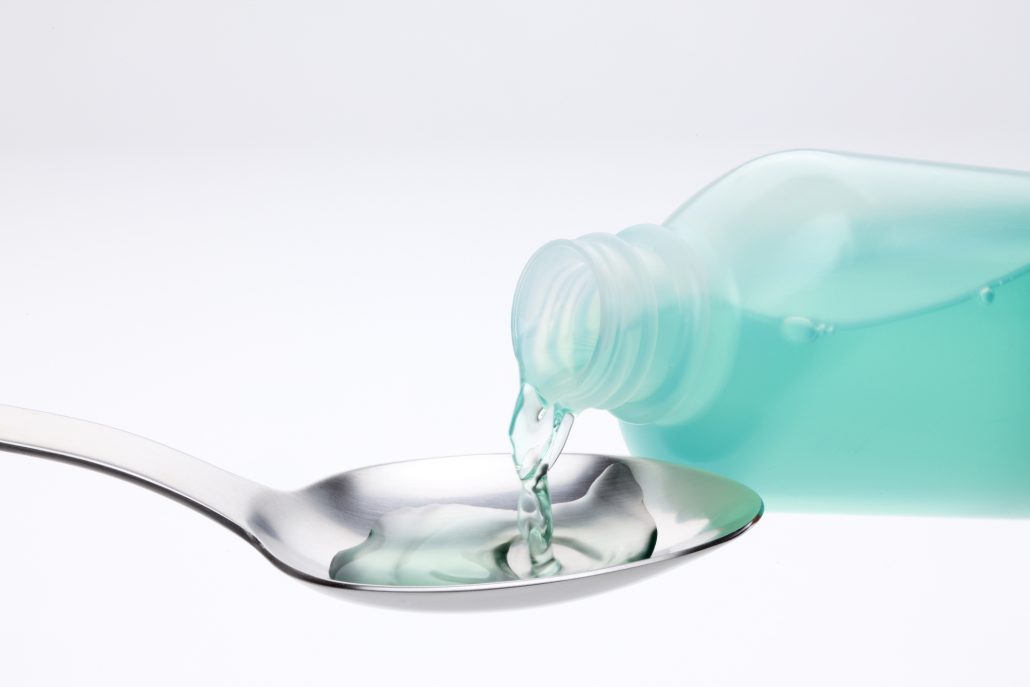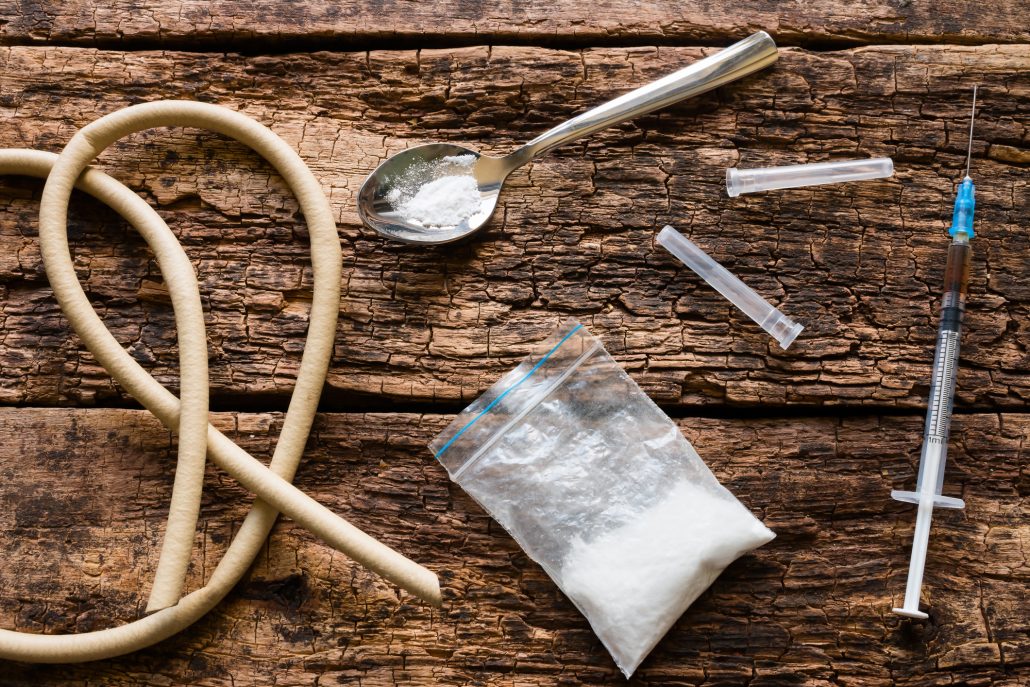by staff | Jun 2, 2017 | Addiction, Detox, Drug Abuse, Prescription Drugs, Withdrawal

Here we are going to take a look at withdrawal symptoms. We will look at what they are, what determines how you will experience them and talk about how long they last. Then, what is the best way to overcome withdrawals.
How Long Do Withdrawals Last: What is Drug Withdrawal?
Drug withdrawal refers to the group of symptoms that occur upon the sudden discontinuation or even the decrease in consumption of prescription medications, illegal recreational drugs or even some other everyday substances like caffeine.
In order to experience withdrawal an individual must have first developed a dependence on the substance. This dependence can be physical, psychological, or both. Using a substance for an extended period of time will cause the body to gradually adapt in one way or another until it has become used to having it. Once the substance is removed or decreased, there becomes an imbalance in the body or mind as the individual is used to functioning with the substance.
There are many elements that symptoms of drug withdrawal, and the length of that withdrawal, vary depending on the drug of abuse and the length of the addiction.
How Long Do Withdrawals Last: Period of Use
The period of time one uses a drug can contribute to the length and intensity of the withdrawals. For someone who has been using drugs for a few months, the residual impact of those drugs may not be as strong or last as long as someone who has been using drugs for several years.
Because the body takes time to become dependent, the longer you are using a drug the more tolerance you build to it. Also, the functions of the body and mind can be altered by prolonged drug use to the point where they may take a long time to full heal. In some instances research has suggest there is damage that cannot be undone.
How Long Do Withdrawals Last: Different Substances
Of course one of the primary factors to answering this question is to identify the specific substance. Different substances will create different withdrawals, which will last different lengths of time and impact an individual in different ways. Some examples of specific withdrawals and how long they last include:
- Heroin and prescription painkillers: Many people experience flu-like symptoms that last for at least 24-48 hours
- Benzodiazepines (Benzos): People using benzos often experience withdrawals like anxiety and/or seizures, which can last weeks or even months
- Cocaine: For someone withdrawal from cocaine addiction, depression and restlessness lasting at least 7-10 days can occur
- Alcohol: Withdrawals from alcohol abuse can cause tremors and/or seizures, which can last from three days up to several weeks
So prolonged use of anti-depressants like the benzo drug Xanax will cause a much different reaction that withdrawals from an opioid like heroin. Some may be the same.
Don’t forget, these symptoms can be made even worse depending on other factors, such as length of time the substance has been used, at what dosage and how the drug was consumed.
How Long Do Withdrawals Last: General Withdrawal Timeline
Many sources have gathered data that could be used to make a rough estimate of how long withdrawals may last for certain substances. However, this general timeline cannot be guaranteed to be accurate considering each individual’s own health and habits can make these timelines vary.
Prescription Opioids
- 8-12 hours after last dose, for drugs like OxyContin and morphine, the withdrawals can start around this point
- 12-48 hours after the last dose the intensity of withdrawals can peak
- 5-10 days even up to a month or more after last dose opioid withdrawals can persist
Methadone
- 24-48 hours after last dose the withdrawals can begin
- Methadone withdrawals will peak in first few days
- Withdrawals will typically last 2 weeks or more
Benzos
- 1-4 days the withdrawals from drugs like Xanax, Valium and Ativan will begin
- Benzo withdrawals will be peaking within the first 2 weeks
- Protracted withdrawals can last months or even years without treatment
Alcohol
- 8 hours- a few days is usually all it takes for alcohol withdrawals to kick in
- Within 24-72 hours alcohol withdrawals will peak
- Alcohol withdrawals can last several weeks
Cocaine
- Withdrawal from cocaine starts within hours of the last dose
- After a few days cocaine withdrawal peaks
- Cocaine withdrawals can last anywhere from a week to 10 weeks
The data for these numbers can be found through the National Institute on Drug Abuse (NIDA) and various other sources.
Withdrawal symptoms will still depend on the many factors we have already mentioned, including the individual’s general health in the first place. Some drugs cause very real damage to the vital organs that can creature further complications with withdrawals.
How Long Do Withdrawals Last: Medical Detox
To avoid the pain, discomfort and health risks of withdrawal from drugs or alcohol do not detox at home. A safe medical detox is the best way to get the effective and comprehensive help you need to stay healthy while receiving quality care. Medical detox provides a safe and secure space to get through this beginning difficult stage of recovery.
The Palm Healthcare Company detox facility has a 24-hour medical and addiction professional staff to continuously evaluate individual progress, administer the appropriate medications, if needed, and provide unlimited support during this process.
Our highly qualified specialists genuinely strive to make recovery possible for everyone who needs help. If your or someone you love is struggling with substance abuse or addiction, please call toll-free.
CALL NOW 1-888-922-5398
by Sher Delva | May 22, 2017 | Addiction, Addiction Medicine, Addiction Stigma, Mental Health, Stigma, Therapy, Uncategorized, Withdrawal

A recent article in Psychology Today explores the topic of chronic stress and how stress can increase vulnerability to addiction.
Have you dealt with a lot of stress lately? If so, it might be time to take care of it. Stress is a major risk factor in addiction recovery. Stress may increase the chance of a relapse. Stress is a normal part of everyday life and while it may not be possible to eliminate stress completely, there are ways to manage it better.
What is Stress?
Most of us have been stressed before, but how exactly do you define stress? Stress is defined as adversity or hardship that a person experiences. Biologically speaking, stress causes a rise in our blood levels and increases stress hormones, like cortisol. Fight-or-flight is the normal response to stress. In this state, all the blood goes to the muscles so that you are ready to take off when necessary.
There is a difference between chronic and normal stress. Moderate stressors in life are perceived to be pleasant. In fact, some people love a challenging stressful situation that promotes the release of stress hormones. However, intense and prolonged stress due to unfortunate situations can produce feelings of helplessness and depression.
Chronic stress increases the risk for developing:
- Depression
- The Common Cold
- Influenza
- Tension Headaches
- Clenching of the Jaw
- Teeth Grinding
- Tension of neck and shoulders
Stress stems from a multitude of sources. Trauma in early childhood can make people more vulnerable to stress later in life. There are studies that suggest stress in early life can cause methylation of key genes that control the stress system When this happens, we remain in a constant state of emergency.
The workplace is another environment prone to chronic stress.
If your job is very demanding, stress is a likely result. On the same note, those who feel unappreciated at work or unimportant are susceptible to developing clinical anxiety and depression, as well as stress-related medical conditions like ulcers and diabetes.
For some, a common remedy is abusing addictive substances. Research in human studies reveals that adversity during childhood and early life can increase the risk for addiction. Furthermore, people with an unhappy marriage, dissatisfaction with employment or harassment also report increased rates of addiction.
The more stressors a person is exposed to, the greater risk of substance abuse. Economist Deaton (2015) shows that less educated white Americans who struggle in the job market during early adulthood are more likely to experience “cumulative disadvantage” over time, with health and personal problems that lead to drug overdoses, alcohol-related liver disease, and suicide.
Why is this?
One explanation is the self-medication theory. This theory suggests that a person uses drugs to cope with stressors or relieve themselves of anxiety and depression resulting from a traumatic event. Thus, drug use acts as a mean to soothe the psychological distress.
High emotional stress is linked to loss of impulse control and an inability to delay gratification. Chronic stress decreases gray matter volume in the brain. This area is associated with cognitive control and stress regulation.
Essentially, stressed people are prone to give into their impulses as a way of coping with daily stress. In sum, people who are more stressed lack the ability to make rational decisions.
In conclusion, learning to manage stress is crucial to success in recovery. if you are struggling, reach out for help. There are a variety of treatment options available to manage stress. We are a phone call away. Please take care of your health. Call now.
CALL NOW 1-888-922-5398
by Justin Mckibben | May 18, 2017 | Addiction Medicine, Detox, Heroin, Maintenance Drugs, Methadone, Opioids, Prescription Drugs, Withdrawal

Ever since Methadone was introduced to combat opioid dependence, it has been leaned on by countless people over several decades to treat opioid abuse. For a long time methadone clinics have been looked to as a source of relief from an addiction to opioids, but are they as effective as people seem to think? Over time more people who have used methadone to try overcoming serious addictions have realized methadone maintenance also comes with a great deal of damaging side effects.
What is a methadone clinic?
A methadone clinic is a clinic for the dispensing of methadone. Because this is a schedule II opioid analgesic drug, access must be restricted. Methadone clinics are a way to provide people with this medication. But before you rush out to find the one closest to you, there are a lot of things to consider.
What is a Methadone Clinic: History of Methadone
Firstly, let us not that methadone is an opioid drug. It is used to treat pain, like most opioid medications, but most people know it as a maintenance drug for detoxing from dependence on other opioids, such as heroin. Methadone, sold under many brand names, including:
- Methadose
- Dolophine
- Symoron
- Amidone
- Physeptone
- Diskets
Different countries have different brands as well. A few footnotes of the history of methadone include:
Methadone was developed in Germany by Gustav Ehrhart and Max Bockmühl.
The United States approved the use of Methadone.
About 41.400 kilograms of methadone were manufactured globally
What is a Methadone Clinic: Methadone Detox
Methadone is available in various forms, including:
- Pill
- Sublingual tablet
- Two different formulations designed for the patient to drink
Drinkable forms include:
- Methadose- the ready-to-dispense liquid form found in theUnited States.
- Diskets- tablets designed to work like Alka-Seltzer, dispersing rapidly in water for oral administration.
The most common method of administration is the liquid form, because it allows for small dose changes. Methadone is almost as effective when administered orally as by injection.
Detoxification using methadone is intended to be a way for people addicted to opioids such as heroin or powerful prescription drugs to taper off, but at the same time detoxification using methadone has been met with a great deal of controversy.
Many who oppose methadone clinics refer to this strategy as methadone substitution. As a treatment of opioid addiction methadone is heavily criticized for its role in what some call “social control of addicts.” Many who oppose methadone suggested that the drug does not function as much to curb addiction as to redirect it and maintain dependency. In other words, some insist methadone is essentially keeping people addicted, but making sure the money goes to drug manufactures and methadone clinics instead of street dealers.
What is a Methadone Clinic: Methadone Side-Effects
There are so many adverse effects of methadone, which may vary in range and severity depending on the individual. There include, but are not limited to:
- Sedation
- Diarrhea or constipation
- Perspiration
- Heat intolerance
- Dizziness
- Fainting
- Itching
- Weakness
- Chronic fatigue
- Sleep problems
- Nausea
- Hallucinations
- Memory Loss
- Weight gain
- Stomach pains
- Mood changes
- Restlessness
- Decreased libido or impotence
- Urinary difficulty
- Blurred vision
- Skin rash
- Low blood pressure
- Headaches
- Seizures
- Heart problems
- Respiratory problems
Some of these adverse effects of methadone use are much more serious than others.
What is a Methadone Clinic: Withdrawal Symptoms
There is also a massive list of possible withdrawal symptoms from using methadone. This is one of the primary issues many people have with methadone treatment.
Physical withdrawals include:
- Runny nose and sneezing
- Nausea
- Vomiting
- Diarrhea
- Fever
- Sweating
- Chills
- Aches and pains (especially in joints)
- Sensitivity to pain
- Hyperventilation
- Tremors
- High blood pressure that may cause strokes
Others are more concerned with the mental aspect of the withdrawals experienced from methadone.
Cognitive withdrawals include:
- Suicidal ideation
- Drug cravings
- Depression
- Insomnia
- Delirium
- Hallucinations (auditory and visual)
- Agitation
- Anxiety
- Panic disorder
- Paranoia
- Delusions
- Apathy
The irony is that methadone withdrawal symptoms are even reported to last significantly longer than withdrawals from some other opioids. In some cases, people may even try to treat an opioid addiction with this drug not knowing that it is actually a much worse opioid to withdrawal from.
What is a Methadone Clinic: Methadone Overdose
As mentioned before, there are some very real dangers when it comes to using methadone.
- Between 1999 and 2004, deaths in the U.S. linked to methadone quadrupled.
- In 2004 reports credit methadone as contributing to 3,849 deaths, 82% of which were reported as accidental.
- In 2011, there were 4,418 deaths in the United States involving methadone. At the time that made up 26% of total deaths fromopioid poisoning.
Respiratory depression is probably the most common overdose risk related to opioid drugs. Other symptoms of a methadone overdose include:
- Hypoventilation (slow/shallow breathing)
- Drowsiness
- Cool, clammy skin
- Limp muscles
- Unconsciousness
- Coma
- Excessive vomiting
- Risks are greater with higher doses, as well as mixing methadone with any other drugs.
The risks of methadone are very, very real. In fact, U.S. Food and Drug Administration (FDA) issued a Public Health Advisory back in 2006 about methadone titled “Methadone Use for Pain Control May Result in Death and Life-Threatening Changes in Breathing and Heart Beat”. In the report, the FDA stated that they received reports of death and life-threatening side effects with patients who were newly starting methadone.
Both individuals who were starting methadone for pain, or who were trying to switch to it from another powerful narcotic pain reliever were included to be at an elevated risk, according to the FDA.
What is a Methadone Clinic: Another Way
Getting off of powerful opioid drugs, whether they are prescription narcotics or illicit street drugs, is possible without the use of methadone. While maintenance drugs can be useful to some extent as a means of harm reduction, these should not be considered as sustainable means of addiction recovery. Maintenance drugs are typically only ever effective if utilized in combination with therapy and other forms of addiction treatment.
Luckily there are other ways to get help. It is possible to be safely and effectively removed from a methadone taper through a safe medical detox. Understanding methadone can also be fatal is of vital significance. Methadone detox can be deadly if not supported by a medical staff with the right medications to help ease the pain and discomfort of the detox. Medical detox combined with a holistic treatment program is a proven strategy for saving lives.
If you or someone you love is struggling, do not wait. Please call toll-free now. We want to help. You are not alone.
CALL NOW 1-888-922-5398
by Justin Mckibben | May 5, 2017 | Addiction, Detox, Drug Abuse, Heroin, Opioids, Withdrawal

Heroin (diacetylmorphine) is a Schedule I controlled-substance in the United States and is considered by many to be the most addictive drug in the world when compared to other more popular illicit drugs. Heroin is typically associated with the highest likelihood of developing an addiction both psychologically and physically.
Given the fact that the country is facing the most deadly drug epidemic in American history thanks to the opioid overdose outbreak, heroin abuse is now a primary concern facing most of the nation. Other opioids, like prescription painkillers, have contributed to the rising rates of heroin use, and the addition of other potent drugs like fentanyl, heroin is more dangerous than ever.
Heroin overdose is currently one of the top causes of accidental death. People use more than the body can handle and it shuts down. Also, the withdrawals of heroin can be particularly difficult. So how long does heroin stay in your system?
How Long Does Heroin Stay in Your System: Important Elements
When asking how long does heroin stay in your system we have to examine some of the important elements that impact the effects of heroin on the body. Heroin is typically injected intravenously to make a faster impact, but it is also smoked or snorted. Heroin has longer lasting effects compared to drugs like cocaine and meth, but it also has a shorter half-life of only approximately 30 minutes.
What does half-life of heroin mean? Essentially, when an individual uses a single dose of heroin, it will take about 30 minutes for half of the drug in the person’s system to be flushed out. However, some studies actually suggest that this half-life is as short as 3-8 minutes, not 30.
The accurate amount of time it would take is not cut and dry. The half-life of heroin depends on a number of factors for each individual, including:
- Height
- Weight
- Age
- Genetics
- Body fat
- The amount taken
- Purity of the drug
- Method of use
- Metabolism
- Health of the liver
- Kidney health
- Hydration
Not all bodies are the same, so of course not all bodies will be able to get rid of heroin at the same exact rate. A body with more fatty tissue and less hydration will probably retain the chemicals longer than someone well-hydrated with a lean build.
How Long Does Heroin Stay in Your System: Drug Testing for Heroin
Some might hope they can measure the presence of heroin in the system based on drug tests. Of course the length of time a drug is detectable with a drug test depends directly on the rate at which heroin leaves the body. Different drug tests often have different lengths of time they measure, so one might be able to tell you someone used heroin, but it may not be particularly active in the body.
Approved drug tests through the Food and Drug Administration (FDA) for heroin use:
- Blood
- Saliva
- Urine
- Hair follicle
Heroin is typically no longer detectable in a person’s urine after just 2 days, but some tests have detected positive results in up to 7 days.
Blood and saliva tests aren’t often used for most opioids because they have such a short half-life. It can only take about 5-6 hours for heroin to be undetectable for these tests, but in some cases it may actually last up to 2 days.
The only effective long-term test for traces of heroin is the hair follicle test, which can detect heroin for up to 3 months or more. However, if you are trying to find out if heroin is still active in the body, the long-term doesn’t really help.
Many tests now look for heroin metabolites, which are what is created when the liver metabolizes the drug. These stay in the system much longer than the actual intoxicant, so while you can detect the presence of the metabolites, the drug itself isn’t necessarily active. However, many believe that among long-term and/or frequent heroin users, the drug may actually remain in a person’s system for much longer than detectable on a drug test.
How Long Does Heroin Stay in Your System: Withdrawal
One reason many people will want to know how long heroin stays in the system is for the sake of overcoming their withdrawal symptoms. Especially for those who are familiar with suffering through these painful periods of abstinence, the question of how long does heroin stay in your system is about avoiding extended discomfort.
Withdrawal symptoms of heroin include:
- Sweating
- Insomnia
- Malaise
- Extreme anxiety
- Depression
- Itchiness
- Excessive yawning and sneezing
- Runny nose
- Cold sweats
- Chills
- Severe muscle and bone aches
- Nausea
- Vomiting
- Diarrhea
- Fever
- Cramp-like pains
- Involuntary spasms in the legs, arms, and neck
Heroin withdrawals will not be the same for everyone. The same things that impact how long it stays in the system will also impact how severe the withdrawals are. Other substances that are used along with heroin will also have an impact on how serious the withdrawals can be and how long they may persist.
It has been estimated that heroin withdrawal symptom can start within 6-12 hours from the last dose and may be present up to 5-10 days.
How Long Does Heroin Stay in Your System: Overdose Danger
One big reason things like the half-life matter is because of how it increases the risks of overdose.
If we say that after ingesting heroin approximately 50% of the drug has been cleared from the body in somewhere between 8-30 minutes, what tends to happen during this time is that many people assume by time their “high” ends, most of the heroin is already fully cleared from their system. However, when the “high” ends, up to 50% of the heroin will still be in your system, and so will its metabolites! So while some people think the high wears off that quick so they may think it’s safe to do more, there is still a fair amount of that drug present in the body.
Although heroin is quickly metabolized and eliminated from the body, its metabolites remain present for a longer duration. When heroin is used it is de-acetylated into 6-monoacetylmorphine (6-MAM). This chemical then metabolizes into morphine. Morphine’s half-life is estimated to be between 1.5 and 7 hours. As a result, the morphine in the body created by using heroin could stay in your system for 1.60 days before it is entirely eliminated.
So when we ask how long does heroin stay in your system, it isn’t a one-size-fits-all thing. What we can say is that one thing the probably contributes a lot to the skyrocketing rates of overdoses and deaths is that people don’t understand the heroin half-life or how long it stays in the system.
The longer the drug is in the system, the harder it will be to detox from it. That is why medical detox is so crucial to effectively and safely getting off of heroin. It also shows why treatment can be critical to lasting recovery. If you or someone you love is struggling, please call toll-free now.
CALL NOW 1-888-922-5398
by staff | May 3, 2017 | Addiction, Addiction Medicine, Addiction Stigma, Addiction Treatment, Detox, Maintenance Drugs, Methadone, Suboxone, Therapy, Vivitrol, Withdrawal

(This content is being used for illustrative purposes only; any person depicted in the content is a model)
When it comes to overcoming a serious drug addiction it is essential to start strong on the road to recovery with a healthy and stable foundation. With most substances detoxing is not particularly fatal, but there are some drugs that can cause life-threaten detox symptoms without consistent medical care. So when people ask- can I detox from drugs at home- it is technically possible to go “cold turkey”, but chances are it’s going to be extremely painful and in some cases is far too dangerous to risk.
Detoxing from drugs in a safe medical environment is worth the effort for multiple reasons, regardless if you could technically survive the detox on your own, and especially when withdrawals could become lethal.
Sustainable and fulfilling sobriety means consistent work on both the physical and the mental and emotion aspects of addiction. Drugs and alcohol are not the only symptom to addiction; and overcoming withdrawal is not the only benefit of safe medical detox.
You may still be struggling to accept that it isn’t a matter of pure willpower. Maybe you are a parent or family member who just wants to help your loved one. Either way some people resist reaching out for help. Still, the truth is that trying to detox at home isn’t just an unnecessary risk, it can also be incredibly dangerous or even fatal.
Can I Detox From Drugs at Home: Withdrawals
The fear of the pain and discomfort of withdrawal symptoms is often the primary reason why most people never get a fair shot at getting off of drugs. A lot of people end up trying to figure out how to detox from drugs at home, but many find themselves being unsuccessful because of the difficulties they face and the lack of support. Some of the more general withdrawal symptoms people experience when coming off of drugs includes:
- Anxiety
- Irritability
- Panic attacks
- Difficulty concentrating
- Short-term memory loss
- Disturbed sleep
- Headache
- Heart palpitations
- Tremors
- Sweating
- Nausea
- Muscle pain
- Hypertension
- Irregular heart rate
Of course, some drugs are more powerful and thus more damaging. If someone tries to detox at home “cold turkey” from certain substances they may accidentally cause serious damage to their body and/or vital organs.
When asking- can I detox from drugs at home- we also have to consider any pre-existing conditions, or conditions that may have been created through long-term drug use. There are also medical complications during the detox process that most cannot diagnose or treat at home.
Some drug withdrawals can actually kill. Alcohol withdrawals are extremely dangerous, and abruptly stopping some drugs without medical monitoring and assistance is especially hazardous. Ultimately, the specific substance, the length of use and the severity/frequency of use will determine how difficult the detox process will be.
Can I Detox From Drugs at Home: Maintenance Drugs
Again, the difficulty of the detox process can be physically overwhelming. One way people try to fight the withdrawal symptoms from home is by using maintenance drugs, such as:
If you would like more information on Suboxone, download our free E-book: 5 Things No One Tells You about Suboxone.
DOWNLOAD FREE E-BOOK
While these can be useful elements of treatment, often times these methods are unsustainable in the long-term. Some maintenance drugs like Suboxone have side-effects and withdrawal symptoms of their own, which pretty much defeats the purpose.
With methadone people visit clinics to receive doses of a maintenance drug that also is well known for its own horrible withdrawal symptoms.
In the end, those who practice in the field of addiction treatment the medical community agree that these drugs are only ever useful when accompanied by cognitive behavioral therapy or comprehensive addiction treatment. They should not be used as an extended solution to a more complex issue.
Can I Detox From Drugs at Home: Behavioral Therapy
If you’re asking, “can I detox from drugs at home?” then you are probably forgetting one of the most important parts of addiction treatment. Beyond getting through the physical side of detox, there is so much more to recovering from drugs.
While most people think of detox as just the first stages of trying to get clean, there are still opportunities to lay the ground work for continued growth and personal development. Having the time away from the influences of the outside world, you can focus on beginning to change addictive behaviors in a secure facility.
Behavioral therapy and other holistic treatment methods are crucial ways of starting off on a path to recovery from drugs and alcohol. Creating new coping skills and confronting underlying issues can be the key to moving forward progressively while also preventing relapse.
Can I Detox From Drugs at Home: Safe Medical Detox
Addiction treatment professionals agree that detoxing from drugs should always be done with the supervision and support of a trained and experienced medical staff.
People do attempt detoxing from home, but it is still an unnecessary level of discomfort and risk. People do also die from trying to detox from dangerous drugs at home without the proper support. It is important to stress why even though it may be ‘possible’ to try detoxing from drugs at home, it can also be deadly. There are more than enough resources out there, and people willing to help.
At Palm Healthcare we believe in providing drug and alcohol detox with 24-hour assistance from an experienced medical staff to continuously evaluate individual progress, administer the appropriate levels of medications and provide unlimited support during this process. Our highly qualified specialists genuinely strive to make recovery possible for everyone who needs help. If your or someone you love is struggling with substance abuse or addiction, please call toll-free.
CALL NOW 1-888-922-5398






